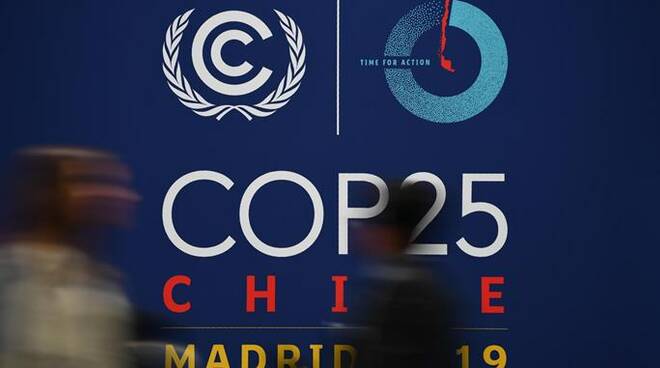12 Dec 2019 A global political impasse threatens both negotiations at COP25 and the EU’s Green Deal
Millions of people are taking into the streets in an effort to save the planet. Despite that, public mobilisation has had very little impact on governments’ leaders so far. Talks between world’s leaders have not evolved into actions as people wish, and the current deadlock at COP 25 between climate negotiators is not surprising.

On 12 December, 2019, observer at COP 25 reports that the gap between public concern over climate change and countries’ actions is wide, and countries, despite pledges and claims, are not taking actions. During the negotiations at COP 25, China disapproved, and therefore delayed, technical agreement on how countries should submit carbon dioxide emissions report to the UN. The US, whose negotiators are participating at COP 25 because US withdrawal from the Paris agreement will not take effect until November 2020, heavily discussed and fought over the world “multilateralism” in a sentence about “the importance of multilateralism in addressing climate change”.
However, this deadlock has consequences. As the UN Secretary-General, António Guterres, admits, if actions are not immediately taken, planet’s temperature will increase of 3.4C or 3.9C by the end of the century. He also said that the private sector moved more speedily than governments.
In the meantime, on 11 December, 2019, the EU unveiled its Green Deal with a set of environmental initiatives ranging from 2050 carbon neutrality, state-aid rules, green industrial policy to allow governments to spend on projects that reduce carbon emissions, and a carbon border tax (CBT) on imports.
The EU will propose a climate law in March 2020 to fulfil its 2050 zero-carbon emission goal. Moreover, Brussels will employ €100bn of the European Investment Bank’s budget and investment loans to find a transition in poorer, eastern member states whose economies are heavily reliant on fossil fuels. The €100bn Just Transition Mechanism will be uncovered in January. However, Poland, Hungary and Czech Republic will not back EU’s 2050 zero emission target, until they can secure EU’s financial aids.
At the centre of the debate, there is another contentious argument. Brussels will propose a Carbon Border Adjustment Mechanism in 2021. It imposes selective levies on foreign producers to protect EU’s businesses from countries which do not comply with international climate targets, and it will start with a pilot project with imports of steel and cement. The proposal faces complications within the EU, and from trading partners’ outside the EU. Marcia Bernicat, US ambassador to COP 25 said that the CBT would be a great concern for the US.
Brussels new executive set a very forward-looking agenda as far as the environment is concerned. However, Ms. Ursula von Der Leyen has to come up with sound arguments to convince EU governments and MEPs to support her proposal. But, as the deadlock at COP 25 proves, without a unified political will, the green deal would be extremely difficult to enter into force.
For further information, please see the following links:
https://www.ft.com/content/637b58e8-1c2d-11ea-9186-7348c2f183af
https://ec.europa.eu/info/strategy/priorities-2019-2024/european-green-deal_en#documents
https://www.ft.com/content/913c15ce-1c1e-11ea-97df-cc63de1d73f4
